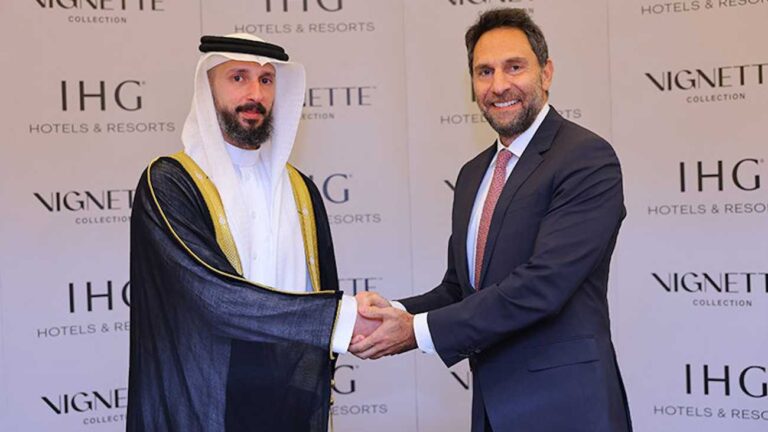Hotel owners in the Gulf are increasingly choosing franchise agreements with international hotel brands over the less profitable direct management route, industry experts and analysts say.
This is especially true in the UAE and Saudi Arabia where the hotel industry is maturing and hotel owners know their business better, driving them to manage their own properties under franchise rather than sub-contract.
Franchising is generally more profitable for the hotel owner and makes it easier for international brands to expand their network.
It is also typical of more mature markets such as the US, where the majority of hotels are run under franchise rather than managed directly by the company that owns the brand.
“The franchise penetration rate is increasing as more owners seek cost-effective and flexible operating structures,” says Tatiana Veller, managing director of Stirling Hospitality Advisors in the UAE emirate of Ras Al Khaimah.
“Saudi Arabia and Dubai, in particular, are experiencing a sharp rise in franchise adoption as owners grow more confident in managing hotels independently or through third-party operators.”
In January, for example, IHG Hotels & Resorts signed a deal with Saudi Arabia’s Al Harithy Group to rebrand a 193-key property on the Jeddah Corniche, which is due to reopen next year as The Venue, Vignette Collection Jeddah Corniche.
The Vignette Collection is IHG’s newest luxury brand, and currently has 20 hotels operating under the name world-wide, with 35 more in the pipeline. Al Harithy Group is a real estate company based in Jeddah.
In contrast to the more mature markets, as much as 80 percent of hotels in the wider Middle East region are managed directly, with the remainder under franchise, data from the global hospitality consultancy HVS shows.
International Hotels Group (IHG), for instance, the British company whose brands include Holiday Inn, InterContinental and Crowne Plaza, has a 50-50 split in Dubai between the 16 hotels.
It has 3,800 keys under franchise and the hotels it manages directly, says Amith Khanna, who heads franchising for IHG Hotels & Resorts in India, the Middle East and Africa.
IHG’s pipeline of franchised hotels versus directly managed hotels in Dubai is due to grow by around 40 percent over the next 12 to 18 months, Khanna says.
Of five hotels that IHG is due to open in the UAE in 2025, four will be franchises and only one will be managed directly, the company says.
Overall in India, the Middle East and Africa, however, just over a quarter of keys are under franchise and the remainder are managed directly, Khanna says
Embracing global names
The managed model is typical of less mature hospitality markets, as less experienced hotel owners skip doing everything independently and in-house, instead embracing global industry names and standards, such as IHG, Hilton Worldwide and Accor Group.
This then involves the hotel operators running operations on the ground, and providing each hotel with their brand, style, quality guidelines and access to far-reaching booking systems. It is a “lot of headache” for the hospitality companies, and more expensive for owners, Khanna says.
The upside of franchising is that the hotel owners have more say in how their hotel is operated and they pay lower fees to the brand, while in turn the brands find the lighter franchising touch a better way to expand their network, Veller at Stirling Hospitality says.
The drawback is that the onus is on the owners, or a third-party manager, to run operations on the ground while still upholding the larger brand’s standards of quality.
Along with the rise of franchising, the UAE is also experiencing a wave of managed hotels switching brands, or re-flagging, as global hospitality firms compete for prime properties while asset owners seek better contractual terms.
